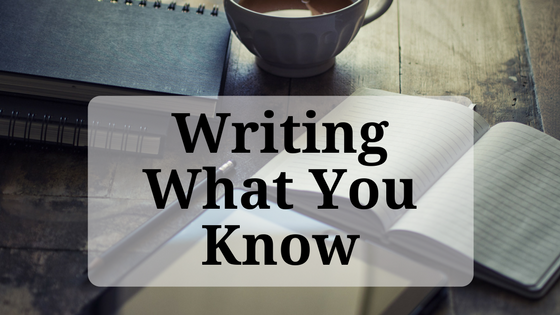
“Write what you know.”
It’s classic writing advice, but recently on social media, I saw someone ask if it was “good” advice. And much to my surprise, a fair number of people said, no. As if it were a ridiculous idea that fiction writers, especially, should know what they’re writing about.
While I kind of see the point–in fiction, we make up entire worlds, and it’s impossible to know these fabricated realities as facts–I still have to disagree.
“Write what you know” is still good advice and always will be. While everyone does develop their own process and product, it’s important to master the basics before one can expect to skillfully upend them.
What really matters is how you hear the words “what you know.”
“What you know” sounds limiting when you assume:
- you are limited to writing about the small town you knew as a child.
- you are limited to writing about people who have a job that you’ve had.
- you are limited to writing about people whose skin color is exactly the same as yours.
If all you hear are limitations in that phrase, I can see why you’d want to tear it out of the rule book.
But what if you don’t need to feel constricted? What if “write what you know” simply means that you should know what you’re writing about? And if you don’t, you should go learn about it?
Writing what you know is really an invitation to expand as a human being and a writer.
Don’t you like the sound of that?
“What you know” not only speaks to your life experience so far, but also to your ability and willingness to imagine and empathize on different planes. There is the physical plane where our five senses gather data. There is an intellectual plane where reason, thoughts, and ideologies reside. Let’s be honest. This is as far as some writers go–especially new writers–when the story requires that they write something they haven’t experienced. They imagine the thing as their senses might see, hear, touch them. And they plant all the right terminology in what looks like the right place.
But it feels incomplete because there are other ways of knowing things, aren’t there?
There are other ways to know people. And isn’t a character in a story just a person you’re getting to know?
There is an emotional plane where an entire scale of human feelings comes into play. Some emotions are innate and some are learned to get along with others. What a character is ashamed of, for instance, is a huge tell about who they are, what they know, and what their growth or downfall might realistically look like. Most of us know about shame, but we don’t talk about it in our culture. And if we’re uncomfortable with shame, or if we misunderstand what heals shame and what drives it, that might make it harder for us to write about in a believable way.
There is a spiritual plane teeming with concepts, connections, symbols, and experiences. Spiritual beliefs may be cultural, familial, individual. A spiritual life, or lack thereof, is often a complex story in and of itself. And if we do NOT expand from the place of our own knowing and belief when we write, we miss a chance to know another. And we miss a chance to know our characters.
There can be other levels of knowledge I haven’t even mentioned because the world is huge, and as writers, we can’t even begin to capture it’s entirety. All we can do is expand and try to capture our observations.
When faced with a character or setting that’s very different from what you know, that’s not necessarily a sign that you need to stop. It’s a sign that you should slow down and learn more. If there are significant barriers to you learning about it on multiple levels, if there are barriers to empathizing and getting inside something you’ve never known before, then perhaps that’s a sign to step away. But if you can reasonably learn it, then do.
“Write what you know” is not a stern commandment to stay in your own lane. It’s an invitation to grow.
If you want to write historical novels, then become a student of history. Make history something you know.
Become a student of a different culture. Of science and reason. Of spiritual matters. Or whatever else you want to write about most.
The deeper the dive, the more you know, the better your writing will become.

Leave a Reply